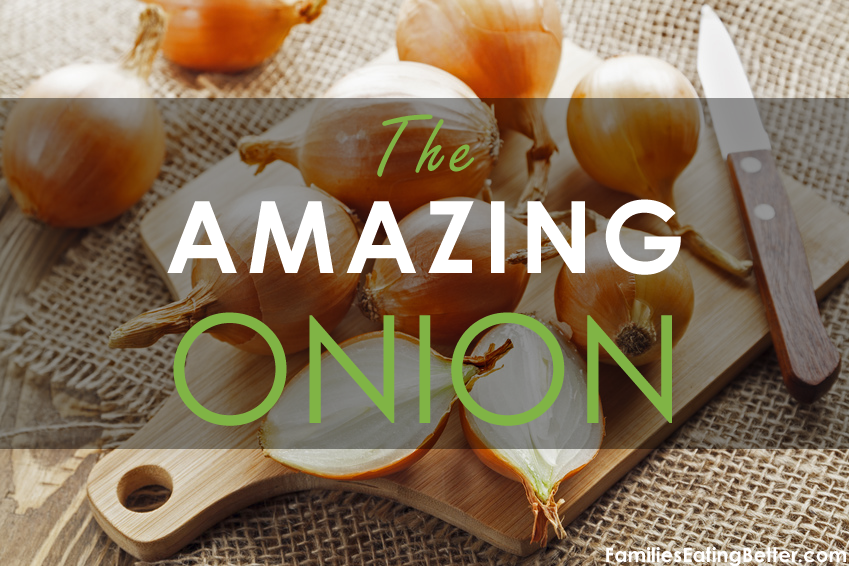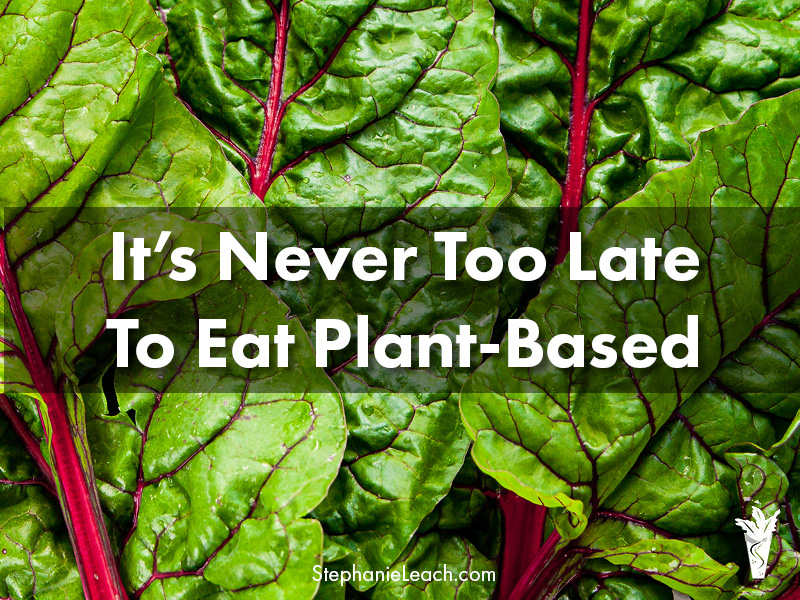I planted onions for the first time this spring. Over the weeks I watched the bulbs grow into creamy white globes topped by long, green shoots. When the tops fell over (literally, they fall down) I pulled them up, rinsed them off and set them on my patio table to dry in the hot summer sun.
Now that I have this small mountain of onions, I need to do something with them. Something more than chopped and sautéed at the start of a recipe.
Onions are serious health food. Cancer-fighting, bone-building, allergy and asthma friendly onions deserve a spotlight on the plate.
Cancer-Fighting Onions
Published studies show onions, along with other members of the allium family like garlic, chives and leeks, demonstrate protective effects against stomach cancer and significantly lowered the risk for prostate and esophageal cancer.
Interestingly, in Vidalia, Georgia, where the delicious Vidalia onion is enjoyed in large quantities, the death rate from stomach cancer is 50% lower than the rest of the nation.
Eating between 1 and 7 half-cup servings of onions a week are sufficient to statistically lower your risk of colorectal, laryngeal and ovarian cancer. For decreased risk of oral and esophageal cancer, you’ll need to eat about a ½ cup of onion each day.
Nature’s Fosamax
In a study published in Nature, male rats that ate a small amount of dried onion daily had a calcium increase of 17 percent, and female rats with bone loss and osteoporosis had stronger bones when fed onions.
Human studies have shown similar benefits. Daily consumption of onions has a robust effect on bone density and may lower the risk of hip fracture in older women. A compound in onions inhibits osteoclasts – cells that break down bone. The drug Fosamax works in a similar way, but onions do it without a long list of side effects!
Allergy and Asthma Help
Onions are a good source of quercetin, a flavonoid with antiallergic properties. Quercetin can help relieve asthma and hay fever by blocking some of the inflammatory responses in airways.
Many people take quercetin supplements, but eating the whole food – the actual onion – wins when it comes to protection from oxidative stress.
Maximize the Health Benefits of Onions
Store in a well ventilated space at room temperature, away from heat and bright light. Except for green onions, do not refrigerate them. Placing them in a wire hanging basket or perforated bowl I usually best.
Peel onions a little as possible. The flavonoids in onion are concentrated in the outer layers.
Let cut onions sit for at least 5 minutes. This helps enhance their health-promoting benefits.
Increase the amount in the recipe. In most recipes, you can easily double the amount of chopped onion.
Add onion to spaghetti sauce. Boost the health benefits of jarred sauce by adding a cup or two of sautéed onion.
Ready to cook some onions?
Here are some recipes from around the web that help onions shine.
Skillet-Charred Vidalia Onion Salad (with Chickpeas)
Roasted Red Onions and Delicata Squash
Frittata with Onion, Tomato and Basil
Roasted Onions with Herb Butter Sauce
Source:
http://www.whfoods.com/genpage.php?tname=foodspice&dbid=45
The 150 Healthiest Foods on Earth, Jonny Bowden, Ph.D., C.N.S.








Leave A Comment